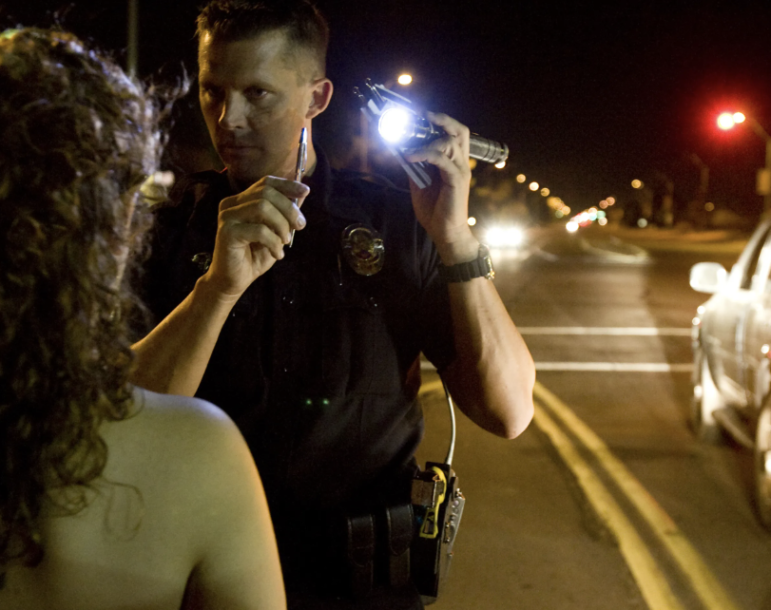As the legalization of cannabis continues to sweep across various states and countries, there’s a growing concern surrounding the intersection of cannabis intoxication and car accidents. While cannabis can have numerous therapeutic benefits, its potential to impair judgment, coordination, and reaction time when used recreationally or medicinally poses significant risks when individuals get behind the wheel. In this article, we’ll explore the complexities of personal injury cases related to cannabis intoxication and car accidents, shedding light on the legal issues, challenges, and responsibilities involved.
How Cannabis Impairs Driving
Cannabis contains THC, the compound responsible for its psychoactive effects. When consumed, THC affects the brain’s ability to process information, slows reaction times, and impairs motor coordination. These effects can significantly increase the risk of motor vehicle crashes. Unlike alcohol, which has a well-established impairment threshold (0.08% BAC), cannabis impairment is harder to measure due to varying THC concentrations and individual tolerance levels.
Many car accidents in Houston happened because of taking cannabis. If you face any unwanted situations or car accidents for taking these, you should take legal advice. Our Houston car accident attorneys can help you with the best solution.
Cannabis-Related Crashes: What the Data Says
Recent studies show an increase in cannabis-related motor vehicle crashes, especially in areas where cannabis is legal. For instance, a study conducted in Colorado revealed a 6% increase in traffic fatalities involving cannabis-impaired drivers post-legalization. However, the data is complex, as some crashes involve multiple substances, making it challenging to isolate cannabis as the sole factor.
How Long Should You Wait to Drive a Car After Using Cannabis?
It is generally recommended to wait at least 4-6 hours after consuming cannabis before driving, though this can vary depending on the individual’s tolerance, the amount consumed, and the method of consumption. Some effects may last longer, particularly with edibles, so it’s essential to ensure you feel fully alert and unimpaired before driving.
What are the Penalties for Driving Under the Influence of Cannabis?
Penalties for driving under the influence of cannabis vary by region but can include fines, license suspension, mandatory substance abuse programs, and even jail time. These penalties are often similar to those for driving under the influence of alcohol, reflecting the serious risk that cannabis-impaired driving poses to public safety.
The Legalization Landscape
Cannabis legalization varies greatly from one jurisdiction to another, with some allowing for recreational use, medicinal use, or both. This legal patchwork has made it challenging to establish consistent guidelines and standards for cannabis impairment while driving. Laws and regulations related to cannabis use and driving impairment differ widely, adding a layer of complexity to personal injury cases involving cannabis intoxicated drivers.
Proving Causation
One of the primary challenges in personal injury cases related to cannabis intoxication and car accidents is establishing causation. Unlike alcohol, which has well-established blood alcohol concentration (BAC) limits for impairment, determining the level of impairment due to cannabis is far more complex. THC, the psychoactive compound in cannabis, can remain in a person’s system for days or even weeks after use, making it difficult to attribute an accident solely to recent cannabis consumption.
Way to Prove a Combination of Evidence
To prove causation in such cases, personal injury attorneys often rely on a combination of evidence, including:
- Eyewitness Testimonies: Statements from witnesses who observed the at-fault driver’s behavior before the accident can be crucial in demonstrating impairment.
- Drug Tests: The presence of THC or its metabolites in the at-fault driver’s system, coupled with other evidence, can help establish impairment.
- Field Sobriety Tests: Law enforcement officers may administer these tests to assess a driver’s impairment. However, there is debate about their reliability in detecting cannabis intoxication.
- Expert Witnesses: Experts in toxicology and pharmacology can provide testimony regarding the effects of cannabis on driving abilities.
Negligence and Liability
In personal injury cases involving cannabis intoxication, the injured party must establish negligence on the part of the at-fault driver. Negligence typically involves demonstrating that:
The at-fault driver owed a duty of care to others on the road.
The driver breached that duty through impaired driving due to cannabis intoxication.
This breach of duty directly caused the accident and resulting injuries.
Establishing negligence may be challenging, especially when dealing with cannabis impairment, as there are no standardized impairment levels akin to BAC limits for alcohol. Personal injury attorneys often work closely with accident reconstruction experts and medical professionals to build a solid case for negligence.
Comparative Negligence
In some cases, both the at-fault driver and the injured party may share responsibility for the accident, a legal concept known as comparative negligence. When it comes to cannabis intoxication and car accidents, determining the degree of responsibility for each party can be particularly complex. Personal injury attorneys must carefully analyze the circumstances of the accident to establish liability and assess the potential impact of comparative negligence on the case’s outcome.
Conclusion
Personal injury cases related to cannabis intoxication and car accidents present a unique set of challenges for attorneys, plaintiffs, and defendants. The evolving landscape of cannabis legalization, coupled with the lack of standardized impairment measures, underscores the importance of thorough investigation and expert testimony in establishing causation and negligence. If you or a loved one has been in such an accident, it’s important to talk to an experienced personal injury lawyer. They can help you with the legal process and work to get you the compensation you deserve while supporting road safety as drug laws change.
How can PMR Law help?
Being injured in a car accident caused by an impaired driver is distressing. However, taking the right legal actions can help you regain control and seek the compensation you deserve. From seeking medical attention and gathering evidence to consulting with an experienced attorney, understanding your options and rights is vital in navigating the complex process of seeking justice and compensation for your car accident injuries.
Contact a Local Lawyer
If you or someone you love has been involved in an accident due to someone else’s negligence, contact one of our Houston car accident attorneys. Contact us today to schedule your free consultation and discuss your legal rights. We care and we can help.
Get in touch with us so we can evaluate your case for free. Call PMR Law at 832-844-6428 and a member of our team will get in touch with you immediately.
PMR Law is considered one of the Best Law Firms in America, by Rue Ratings. Several of our attorneys have been given the honor of being named Super Lawyers by Thomson Reuters. The American Institute of Personal Injury Attorneys has named our attorneys 10 Best in Client Satisfaction. Speaking of personal injury, Attorney and Practice Magazine awarded our attorneys with Top 10 Personal Injury Attorney distinctions. The National Trial Lawyers have named three of our attorneys as Top 100 attorneys. The Academy of Attorneys has named two of our attorneys as Top 40 Under 40. Our attorneys have been recognized as Best Attorneys of America, by Rue Ratings. PMR Law is a proud member of the Multi-Million Dollar Advocate Forum. Houstonia Magazine has named two of our attorneys as Top Lawyers in Personal Injury. Forbes Advisor has recognized PMR Law attorneys as their Best Truck Accident Lawyers of Houston. Texas Lawyer magazine has named PMR Law as the #1 Personal Injury Law Firm in Houston.
FAQs
Is it illegal to drive after using cannabis?
Yes, driving after using cannabis is illegal in most places, even where cannabis is legal. There are legal limits to how much THC (the active ingredient in cannabis) can be in your blood while driving. If you drive over these limits, authorities may give you penalties similar to those for drunk driving.
How does cannabis compare to alcohol in terms of driving impairment?
Both cannabis and alcohol make driving unsafe, but they do so in different ways. Alcohol mainly affects your coordination and reaction time, while cannabis can mess with your judgment, motor skills, and how you perceive time and distance. Using both together is even more dangerous.
What are the statistics on cannabis-related motor vehicle crashes?
In places where cannabis has been legalized, there’s been an increase in crashes involving drivers who tested positive for THC. For instance, in Colorado, fatal crashes with cannabis-impaired drivers went up by 86% after legalization. Cannabis alone is hard to blame for these accidents since other substances often contribute as well.
Are there any signs that a driver might be impaired by cannabis?
Signs of cannabis impairment while driving include trouble staying in a lane, slower reaction times, delayed responses to traffic signals, and erratic driving. The police look for these signs during traffic stops and may perform tests if they think a driver is impaired.

